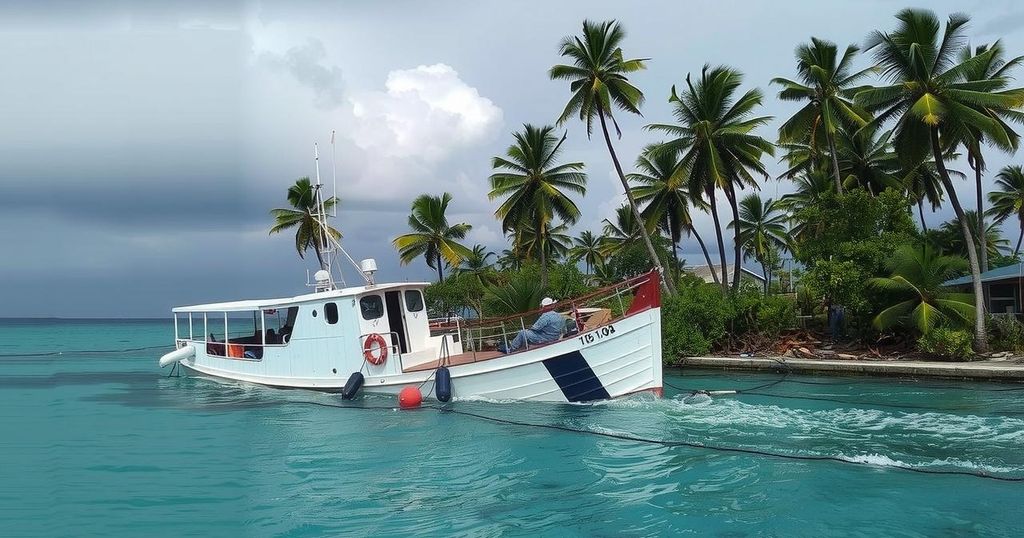Tropical Storm Dikeledi Moves Towards Mozambique Following Devastation in Madagascar and Mayotte

Tropical storm Dikeledi has resulted in three deaths in Madagascar and flooding in Mayotte, while moving towards Mozambique where it is expected to intensify. The storm follows Cyclone Chido, which had already devastated the region. Authorities have implemented safety measures amid ongoing weather alerts as communities prepare for potential impacts in Mozambique.
Tropical storm Dikeledi, which struck Madagascar on Saturday before moving towards Mozambique, has already caused significant devastation, including three confirmed deaths and widespread flooding in Mayotte. The storm, initially classified as a cyclone, impacted Madagascar’s northern coastline with intense winds and heavy rainfall. As it weakened into a severe tropical storm, Dikeledi passed about 100 kilometers away from Mayotte, maintaining a red alert status to ensure the safety of residents due to ongoing strong winds and rainfall. Francois-Xavier Bieuville, the prefect of Mayotte, emphasized the necessity of this alert, citing the territory’s vulnerability to such severe weather events, especially after the recent devastation brought by Cyclone Chido.
As Dikeledi progresses towards Mozambique, it is expected to intensify significantly over the warm waters of the Mozambique Channel, potentially reaching hazardous levels of an intense tropical cyclone. Meteorological authorities cautioned that the Nampula region in Mozambique should prepare for severe conditions characterized by torrential rains and destructive winds. Despite the dangers, some residents in Mayotte disregarded the red alert to carry out activities such as washing vehicles or repairing homes, reflecting a mix of resilience and desperation in the face of recurrent natural disasters. With thousands mobilized for emergency response, the region continues to grapple with the aftermath of these storms while bracing for Dikeledi’s imminent impact on Mozambique.
The Indian Ocean region typically experiences cyclones from November to March, a time when warm surface water temperatures can significantly amplify storm intensity. This year has presented extreme weather patterns, contributing to the ferocity of storms like Dikeledi and Chido. Cyclone Chido, which struck the region in December, left a tragic toll of at least 39 fatalities in Mayotte and extensive damage, exacerbating the vulnerability of local communities. Tropical storm Dikeledi arrives as communities are still recovering, highlighting the risks posed by climate change and the heightened frequency of such natural disasters in the area.
Tropical storm Dikeledi poses a significant threat to Mozambique while leaving a trail of destruction in Madagascar and causing flooding in Mayotte. With ongoing severe weather warnings, authorities continue to prioritize the safety of affected communities. The dual impact of Dikeledi and the previous Cyclone Chido underscores the increasing vulnerability of this region to natural disasters, reigniting concerns over climate-related phenomena exacerbating storm intensity and frequency.
Original Source: www.cbs19news.com








